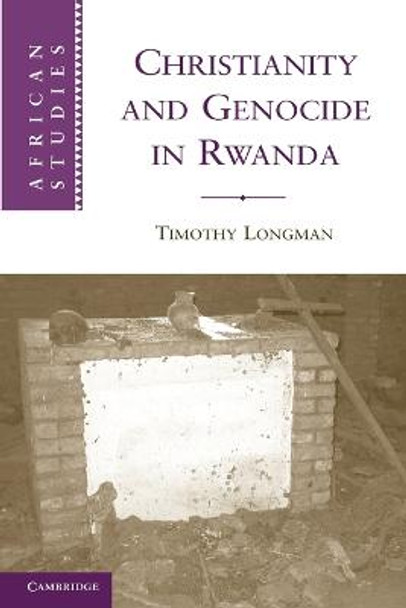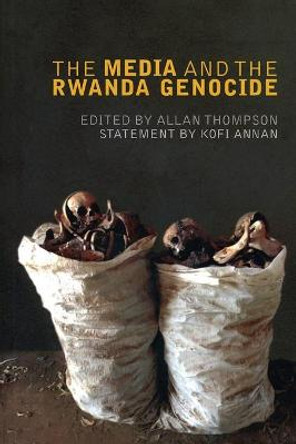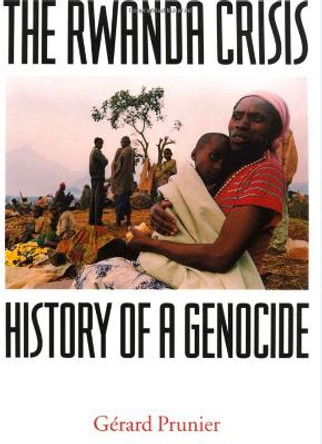Description
This book studies the role of Christian churches in the 1994 Rwandan genocide.
About the Author
Timothy Longman is director of the African Studies Center at Boston University, where he also serves as associate professor of political science. From 1996 to 2009, he served as associate professor of political science and Africana studies at Vassar College, New York. He has also taught at the University of the Witwatersrand, Johannesburg; the National University of Rwanda, Butare; and Drake University, Iowa. He has served as a consultant in Rwanda, Burundi and the Democratic Republic of Congo for USAID and the State Department, the International Center for Transitional Justice and Human Rights Watch, for whom he served as director of the Rwanda field office 1995-6. From 2001 to 2005, he served as a Research Fellow for the Human Rights Center at the University of California, Berkeley, directing research on social reconstruction in post-genocide Rwanda. His articles have appeared in the African Studies Review, the Journal of Religion in Africa, the Journal of the American Medical Association, Comparative Education Review, the Journal of Genocide Research and America, and he is currently completing a book manuscript titled Memory, Justice, and Power in Post-Genocide Rwanda.
Reviews
Reviews of the hardback: 'This book is far more than a profoundly moving and convincing account of one of the late-twentieth century's defining events. It is indispensable for scholars in fields as diverse as conflict and genocide studies, civil society, and religion generally. Longman's analysis of Rwanda's churches as important repositories of power, and thus inherently political organizations, capable both of buttressing authority and of challenging it, constitutes a huge theoretical advance in conceptualizing the role of religion in public life.' Paul Gifford, School of Oriental and African Studies, University of London
'The massive involvement of Christian communities in the killing of Tutsi is one of the most disturbing and controversial questions in the background of the Rwandan bloodbath. In this path-breaking inquest, Tim Longman brilliantly illuminates this long-neglected aspect of the Rwandan tragedy. His book stands as a major contribution to our understanding of the less than edifying role of the Church in Rwanda and other genocidal settings.' Rene Lemarchand, Emeritus Professor, University of Florida
'This thoughtful study significantly advances our understanding of the 1994 genocide in Rwanda. In a bold and nuanced analysis, Longman shows how and why churches linked to the state and imbued with 'a conservative, hierarchical, bigoted version of Christianity' gave moral sanction to violence against Tutsi, making it easier for people to participate in the genocide. Using local case studies, the book elucidates power struggles within churches that mirrored and also shaped conflicts in civil society. This view from below provides valuable insights on the concerns and fears of ordinary people during the turbulent democratization period of early 1990s Rwanda, while Longman's unsettling conclusions constitute a cautionary tale: 'if religious institutions become too closely tied to state power,' he warns, 'they have the capacity to legitimize abhorrent state actions'.' Catharine Newbury, Five College Professor of Government and African Studies, Smith College
'... Christianity and Genocide in Rwanda is an enlightening and enthralling account of the Christian churches' failure at both institutional and evangelical levels in Rwanda before and during the 1994 genocide.' The Journal of Africa
'Based on long-term fieldwork in Rwanda before and after the genocide, this book makes a major contribution to the literature on religion and conflict as well as on the 1994 Rwandan genocide ... Longman's long-term engagement with Rwanda, as well as his familiarity with the literature in French and English on the country, has made him one of the leading American experts on the African Great Lakes region and also on religion and conflict.' International Journal of African Historical Studies
'... Longman's insightful and original contribution provides a fresh perspective on the role of the churches in Rwanda, analyzing them as inherently political organizations that had become too closely tied to state power and continuously stressed obedience to political authorities.' Daewon Moon, Africanus Journal
Book Information
ISBN 9780521269537
Author Timothy Longman
Format Paperback
Page Count 372
Imprint Cambridge University Press
Publisher Cambridge University Press
Weight(grams) 540g
Dimensions(mm) 229mm * 152mm * 21mm







